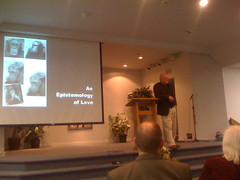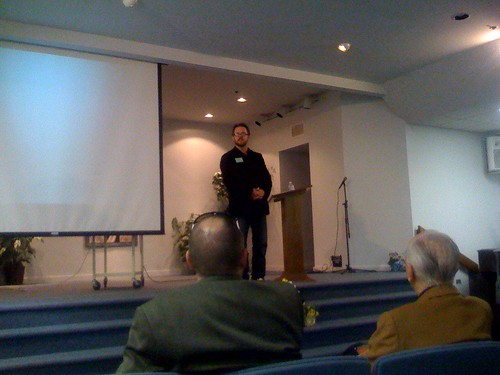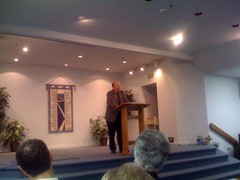Shane Claiborne posted on Sojourners about consumerism, Black Friday and the season of Advent.
Saw this cool site called I Am a Second from Adam McClane’s blog.
The Everyday Liturgy Quarterly – Eucharist Edition. Not just because I have an article in it but because my evangelical friends do not read or dialogue enough about the eucharist. Especially appreciated Scott’s post entitled, “Does Communion Promote Community Among Christians?

 Andy is the author of the highly acclaimed book
Andy is the author of the highly acclaimed book 

 I’m at the “Missional Christianity … Church Beyond Boundaries” Conference at Biblical Seminary. It will conclude with John Franke being installed as the Lester and Kay Clemens Professorship in Missional Theology. (Since my friends and have referred to it as the Franke installation, and they’re here and generally the only ones who read this blog, I’ll probably refer to it as the Franke Installation. If you are reading this and do not fall into the sentence, you are now not confused, right?)
I’m at the “Missional Christianity … Church Beyond Boundaries” Conference at Biblical Seminary. It will conclude with John Franke being installed as the Lester and Kay Clemens Professorship in Missional Theology. (Since my friends and have referred to it as the Franke installation, and they’re here and generally the only ones who read this blog, I’ll probably refer to it as the Franke Installation. If you are reading this and do not fall into the sentence, you are now not confused, right?) On Sunday we worshipped at the Well in Feasterville (again with Evan’s group).
On Sunday we worshipped at the Well in Feasterville (again with Evan’s group).
 Saturday morning we
Saturday morning we 




Recent Comments